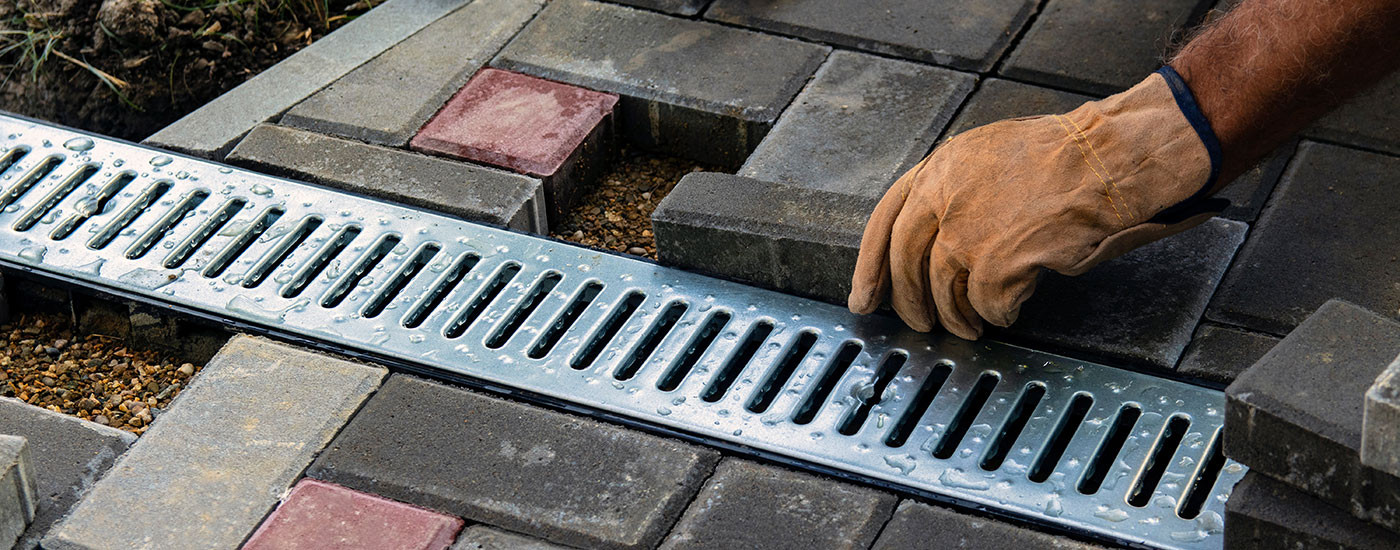With the high volume of rainfall we experience here in the UK, properties often fall foul of flooding. If a driveway floods, it can lead to a variety of problems that will be costly and time consuming to put right.
The effects of poor drainage
- The lack of drainage in driveways can cause a host of problems as follows:
- Drains can become overwhelmed from an excess of water. This may not just be from water that sits on a driveway but can come from water running off the roof of a property or coming from the guttering.
- Where water cannot drain away from the driveway, it can pool against the exterior walls of the property. If this is left unchecked, damp will penetrate to the interior walls and floor, causing mould to grow which can be a risk to the health of anyone inside the property.
- Where a driveway is constantly under water or damp, moss and mould will grow
- If water is allowed to sit on a driveway and then freezes, this can cause cracks and holes to develop in the driveway.
- In addition to the damage mentioned above, water will discolour paving and eventually erode its surface.
- Excessive water could destabilise base materials which will reduce the load bearing capabilities of the drive.
- The risk of slipping is increased where water is left to stand on a driveway, and is therefore a safety hazard.
Driveway drainage legislation
The increase in the number of hard surfaced driveways prompted new legislation to be introduced in the UK on October 1st 2008. Since then, new driveways need to comply with the regulations. Driveways over 5 sq. metres will require planning permission, but driveways smaller than this will not. Furthermore, no driveway, regardless of size, will need planning permission if it is constructed from a permeable material. Choose a porous surface for your drive, such as sandstone paving, porcelain paving or gravel, and always install a suitable sub-base to encourage efficient water absorption. For more details surrounding the installation of new driveways, refer to the Government website.
Drainage systems for gravel driveways
Gravel driveways, although permeable, require a quality geotextile fabric such as a weed control membrane. Placed beneath the gravel, the membrane will prevent weeds and facilitate water infiltration. Read The benefits of gravel driveways for more information.
Drainage systems for paved driveways
Channel drains - are used for paved driveways. These long, narrow drains are positioned at the edge of a paved driveway, capturing surface water and diverting it away from the highway.
French drains – a French drain is a great solution for sloped driveways and driveways in areas with poor soil drainage. Essentially, it is a gravel-filled trench with a pipe that diverts water away from the drive.
Driveways and drainage from Witham Timber
In addition to our large stocks of paving, kerbs and edging, and gravel, we also supply everything you need to install the correct drainage systems. For any questions, please contact us via email at sales@withamtimber.co.uk or call our knowledgeable sales team on 01205 359188.

